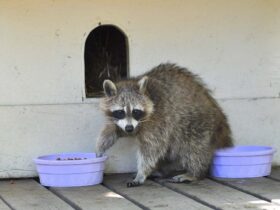People love seafood and there is always a demand for high-quality fish for the dinner table. Due to various environmental and geopolitical factors, ocean fishing has become more difficult and costly, and that cost is reflected in the price consumers pay at the market. Because of these concerns, fish farming has emerged as a highly sustainable and profitable alternative to the difficulties and dangers of operating ocean-going fishing fleets. According to a recent report by the Australian Bureau of Agricultural and Resource Economics and Sciences, Aquaculture has become Australia’s most valuable seafood industry, overtaking wild-caught fish for the first time in 2021-2022! Aquaculture, or Aquatic farming (which includes fish), is a growing industry!
If you are interested in pursuing a career in aquatic farming, then you should consider starting your own aquaculture fish farming business. Fish farming has taken its place as one of the most lucrative aquatic farming businesses an entrepreneur can engage in. Be sure to study the relevant food industry standards Australia guides to get up to speed before you get started. Aquatic farming is a great opportunity, but like any endeavour, it can sometimes be challenging!
In order to maximise your fish farming business’ profits you will need to learn the somewhat complicated process of hatching fish eggs, and then grooming them through their lifecycle to harvestable maturity. Depending on the species of fish you are farming there are two basic methods, making use of open-net cages in the ocean, or installing ponds and/or containers. Open-net pens can hold well over 500,000 fish in an enclosure that is four times the size of a football pitch! There are some disadvantages such as having no control over water quality, as well as the possibility of waterborne disease and predation. An inland pond or lake will limit the number of fish you can grow, but you will also have near total control and can take direct steps to ensure a healthy environment for your stock.
Although it is possible to grow saltwater fish in a pond you will need to invest rather heavily in the salt and other chemicals that recreate seawater and have some pretty major hydraulic systems in place to do the mixing for you, as well as maintaining aeration in the water column. Therefore,it is probably better to grow some popular edible freshwater fish like tilapiawhich are also very much in demand by the average consumer.
Australia boasts a great many advantages for the aspiring fish farmer, some of which are listed below:
- Ideal growing conditions for both temperate and tropical species
- A stellar reputation in the international marketplace for high-quality seafood
- Clean, unpolluted waters
- Extensive aquaculture research programs
- A widespread and diverse industrial support base
- Proximity to major seafood markets in the Asia-Pacific region
- Freedom from many of the serious diseases that plague aquaculture in some other countries.
The Australian government is very supportive of aquaculture projects.
We hope this inspires your aquaculture business.









